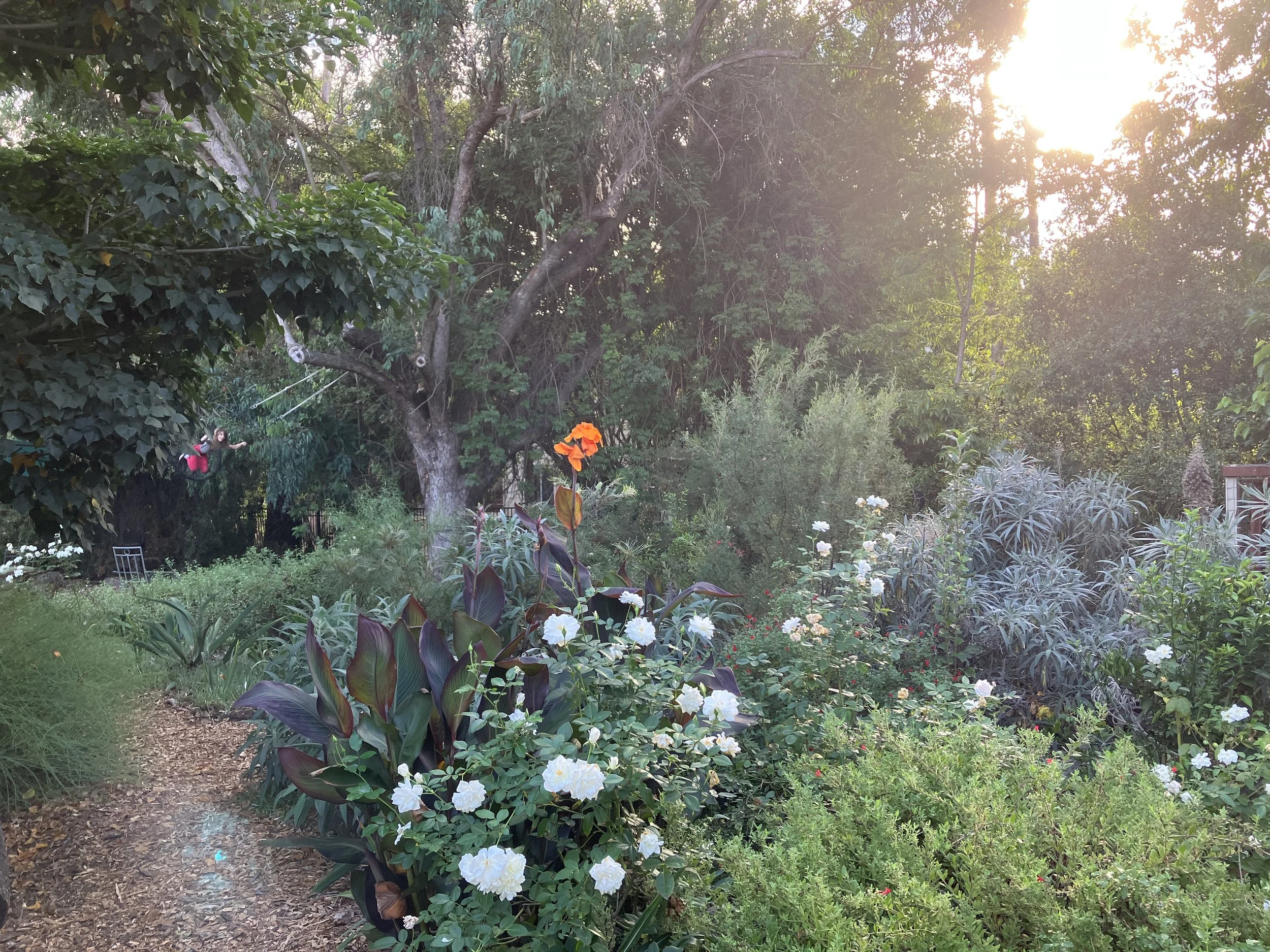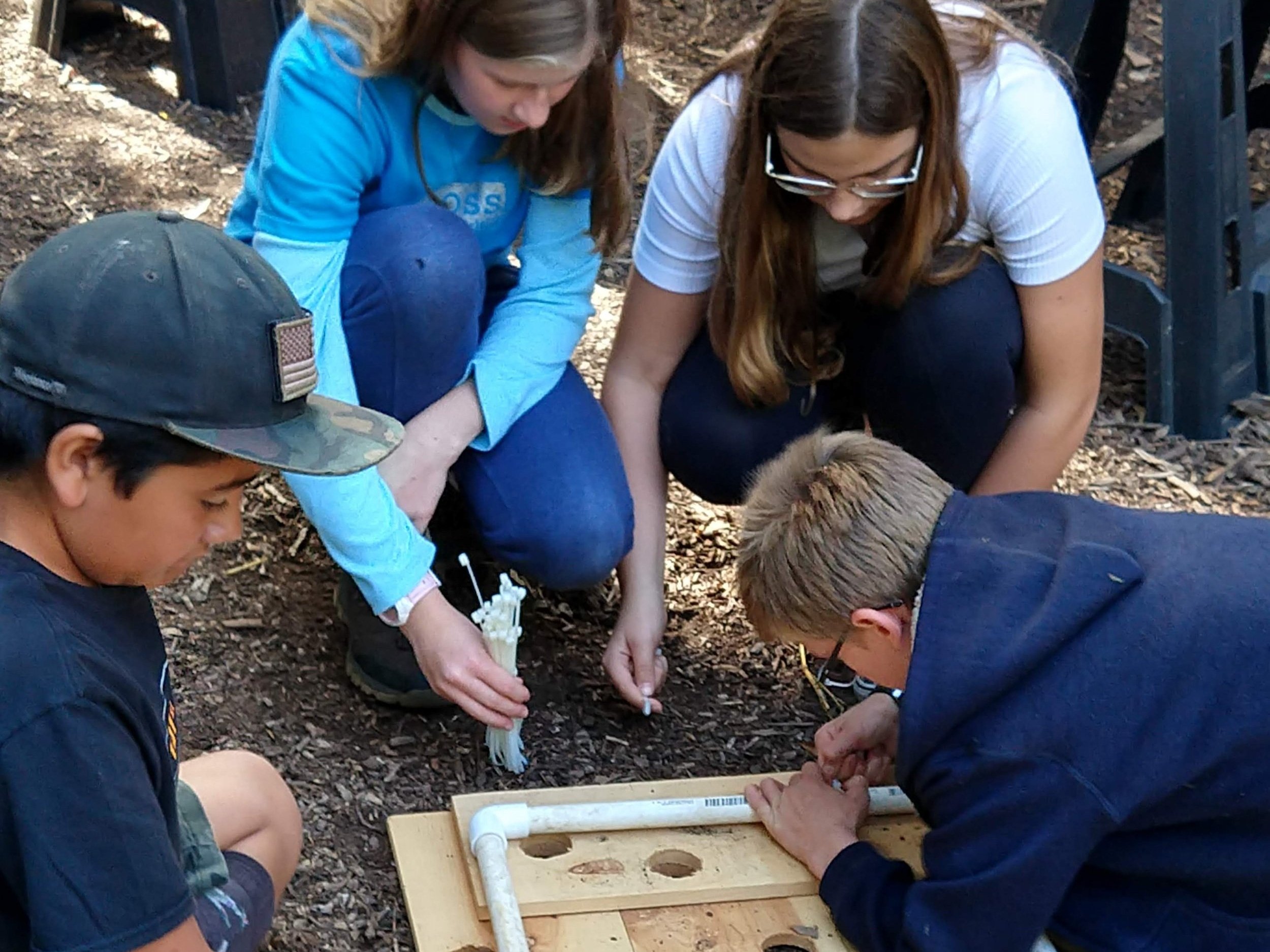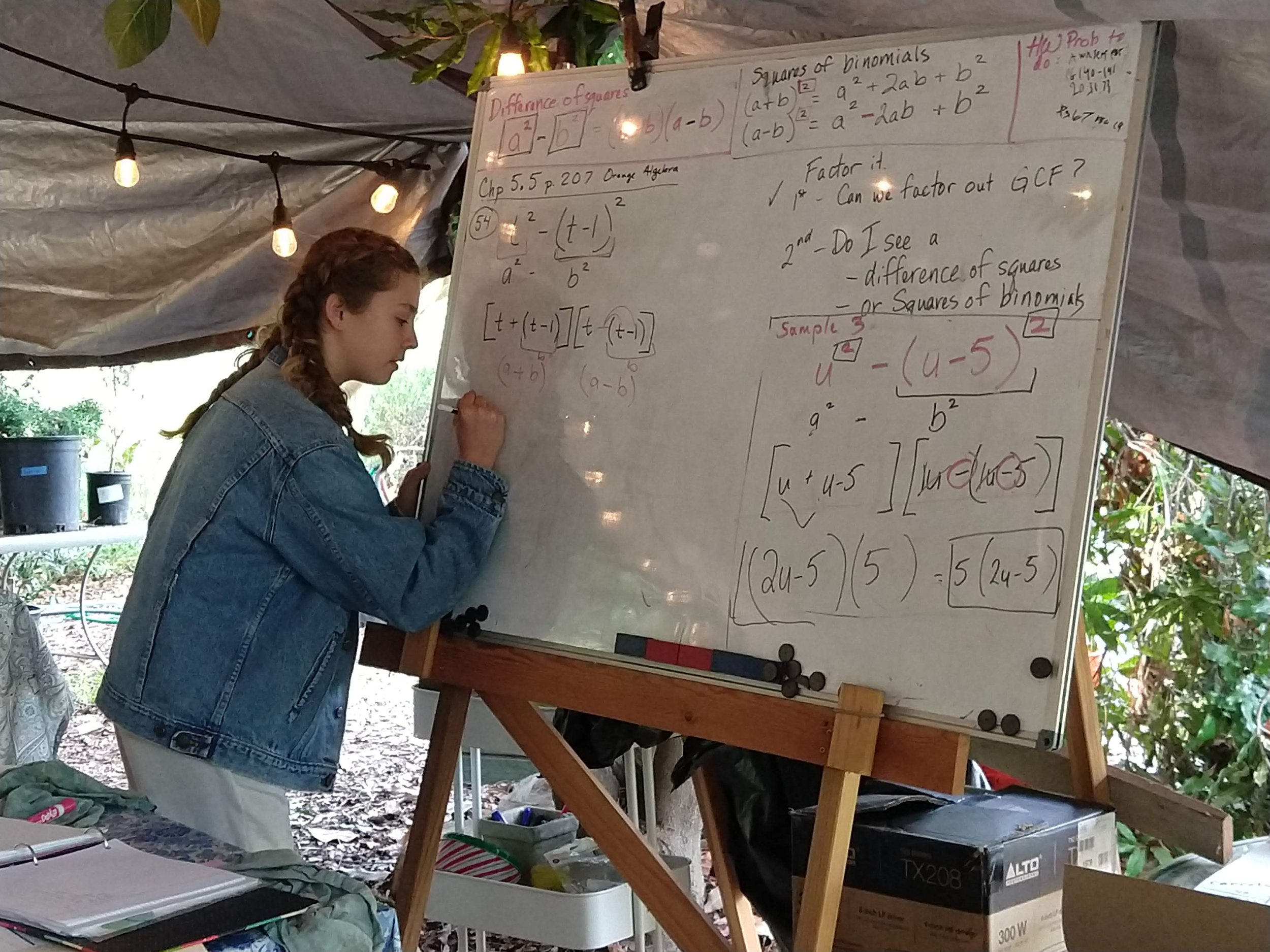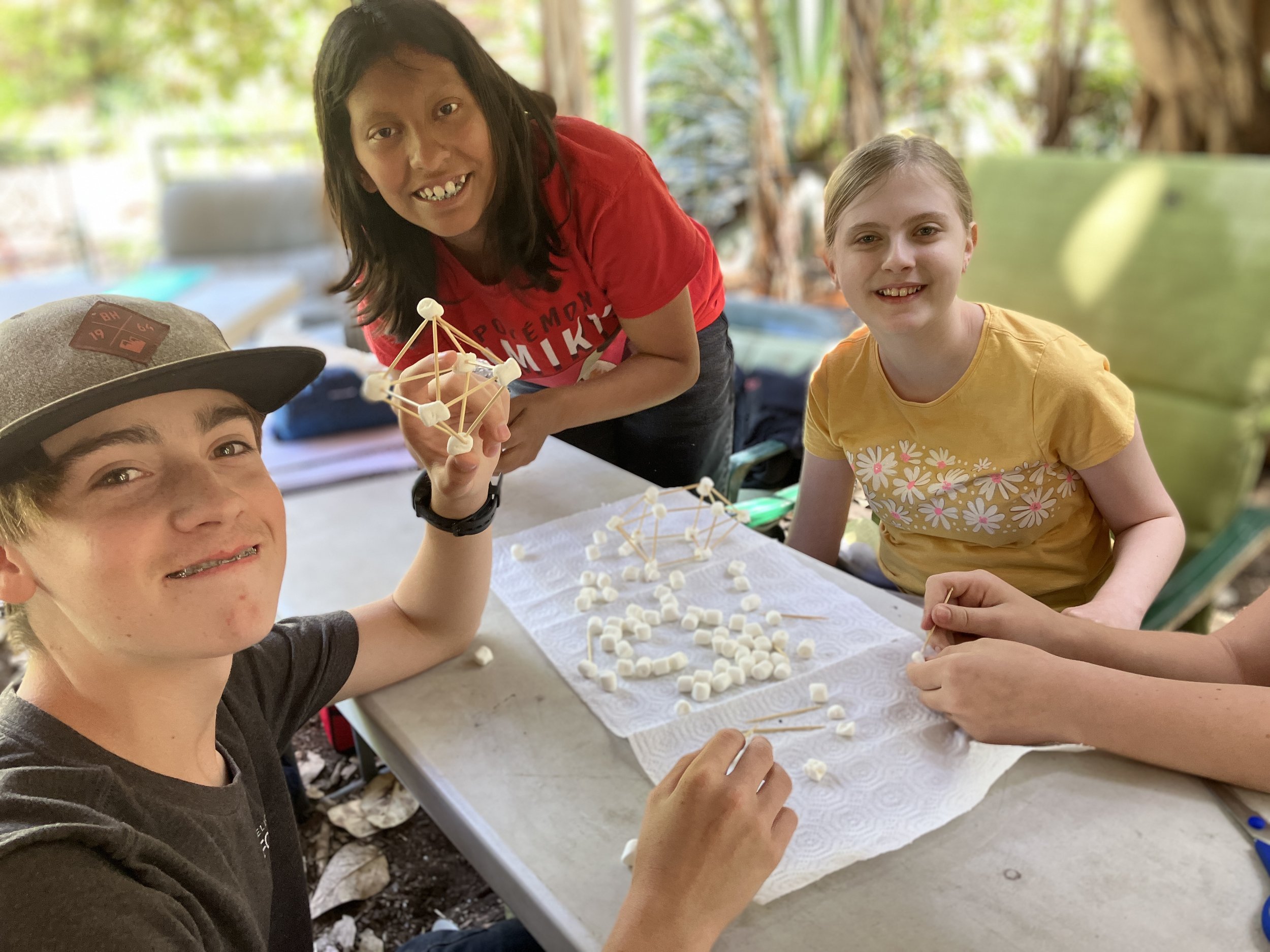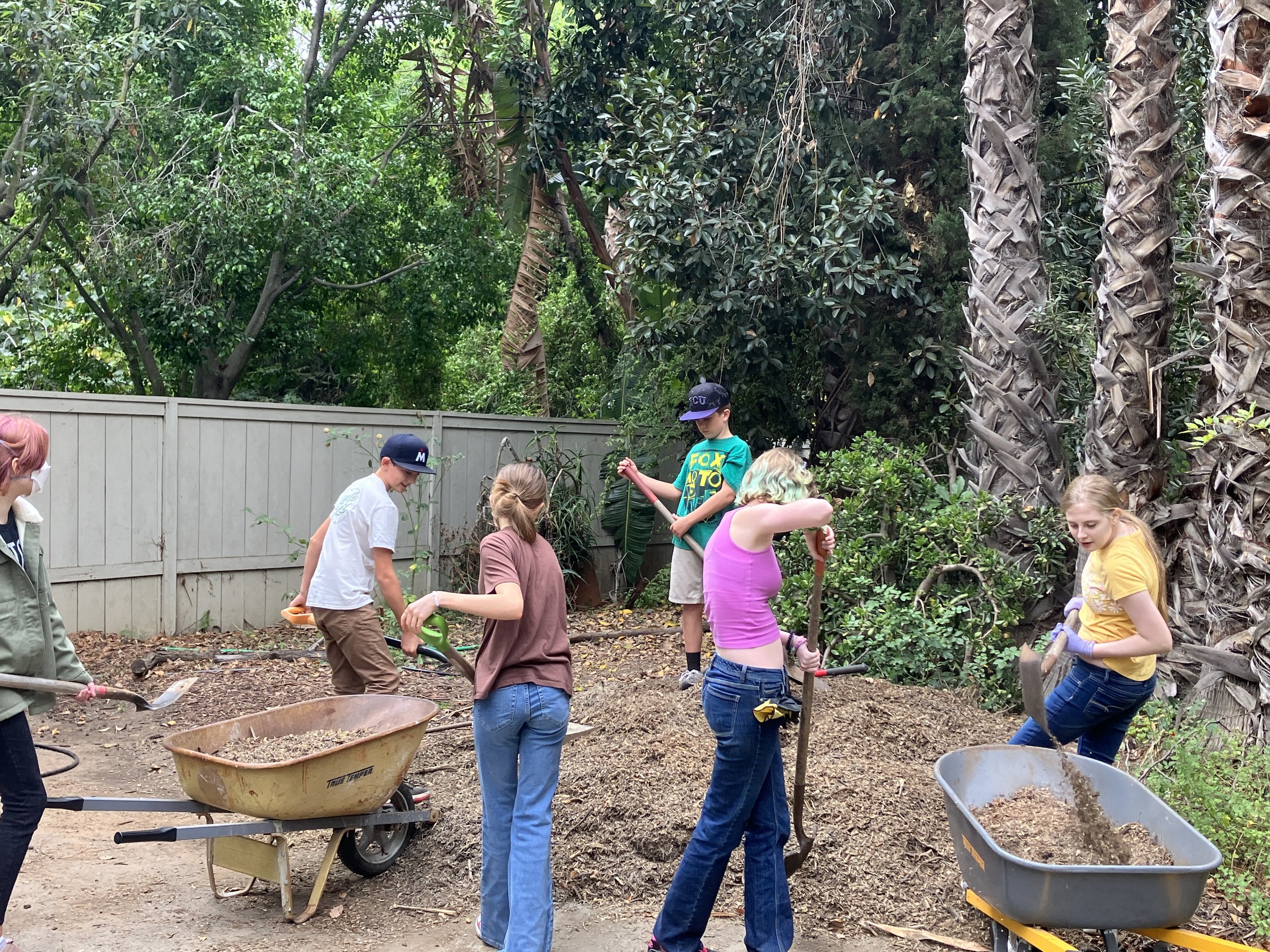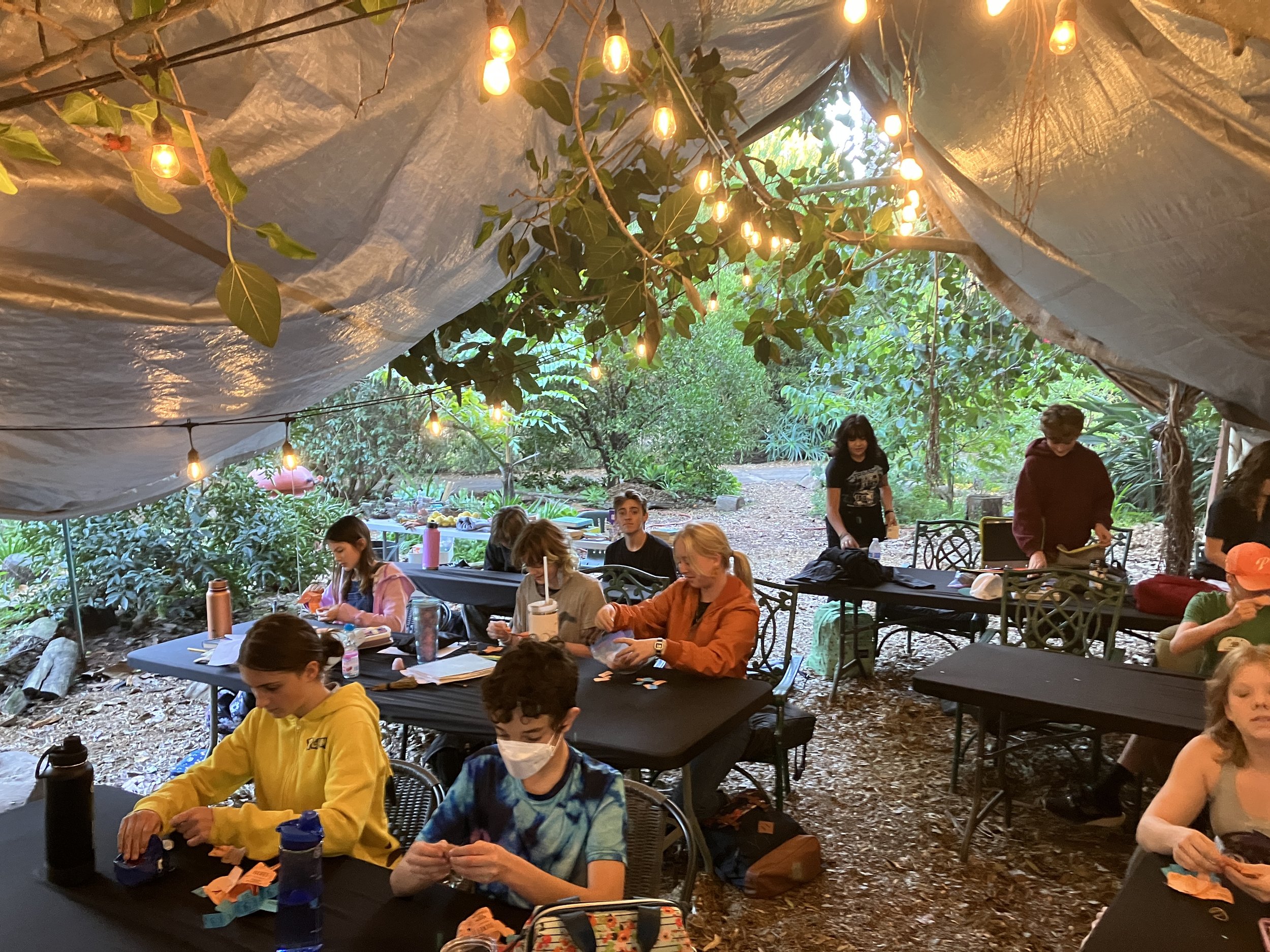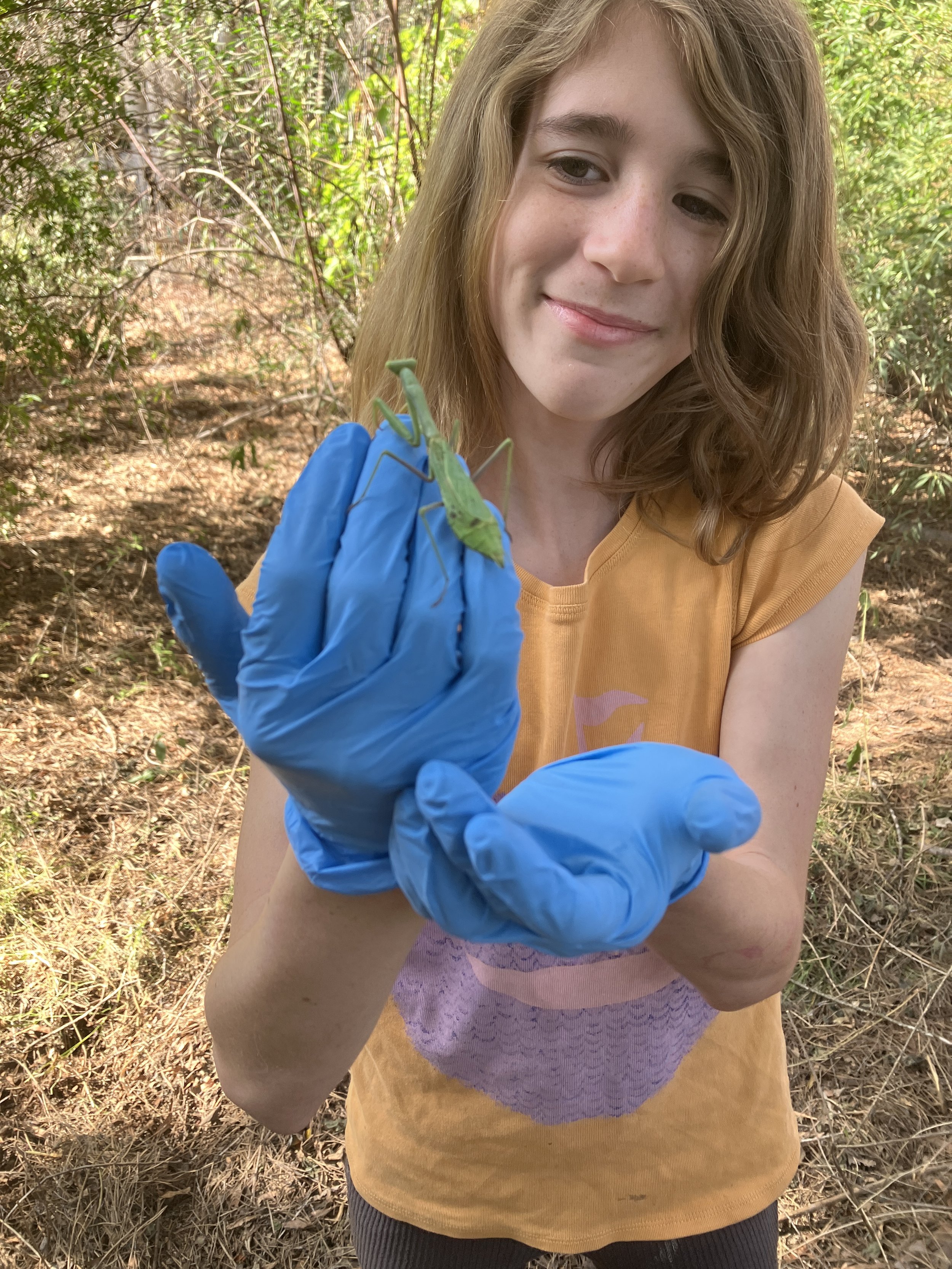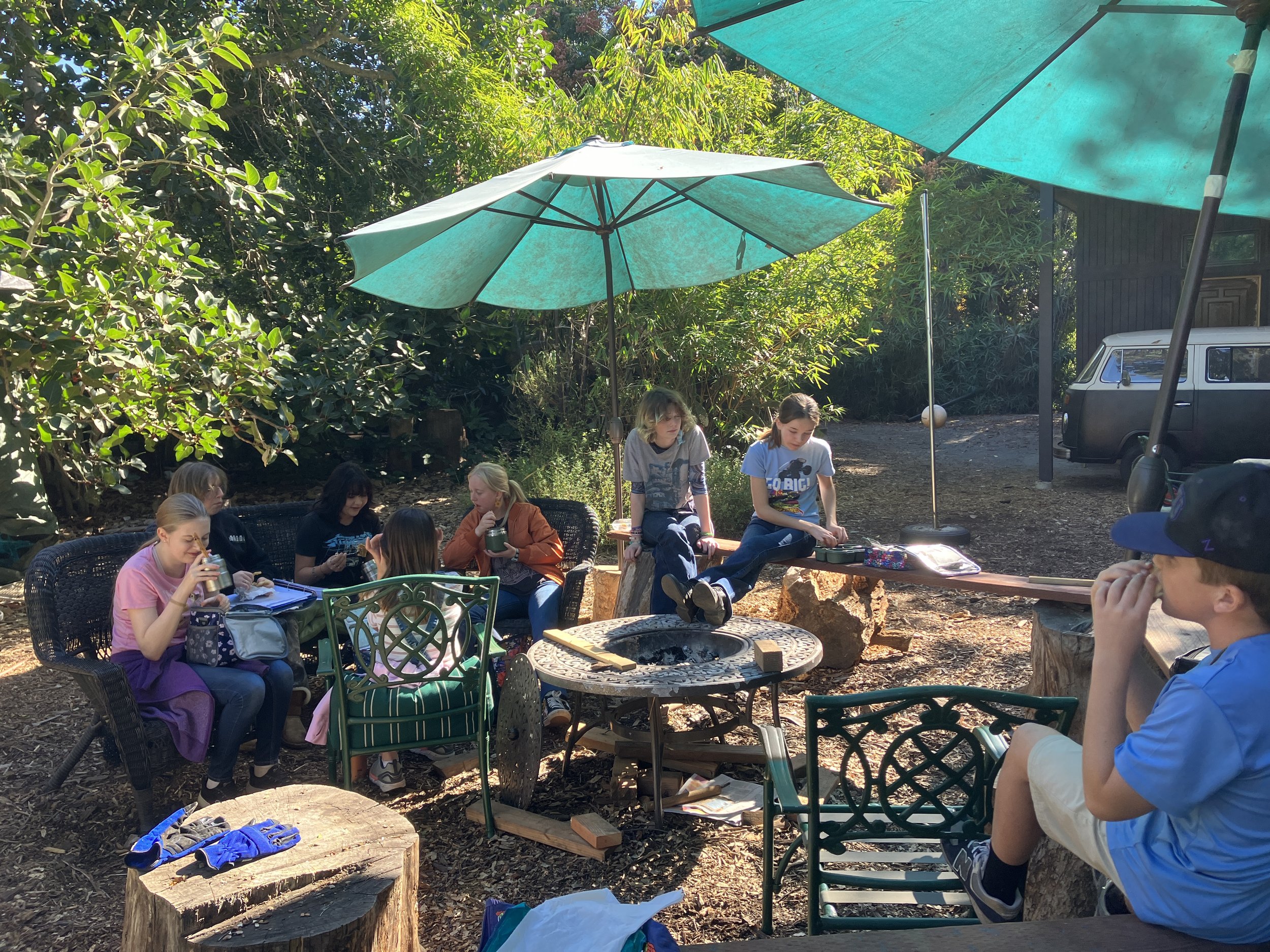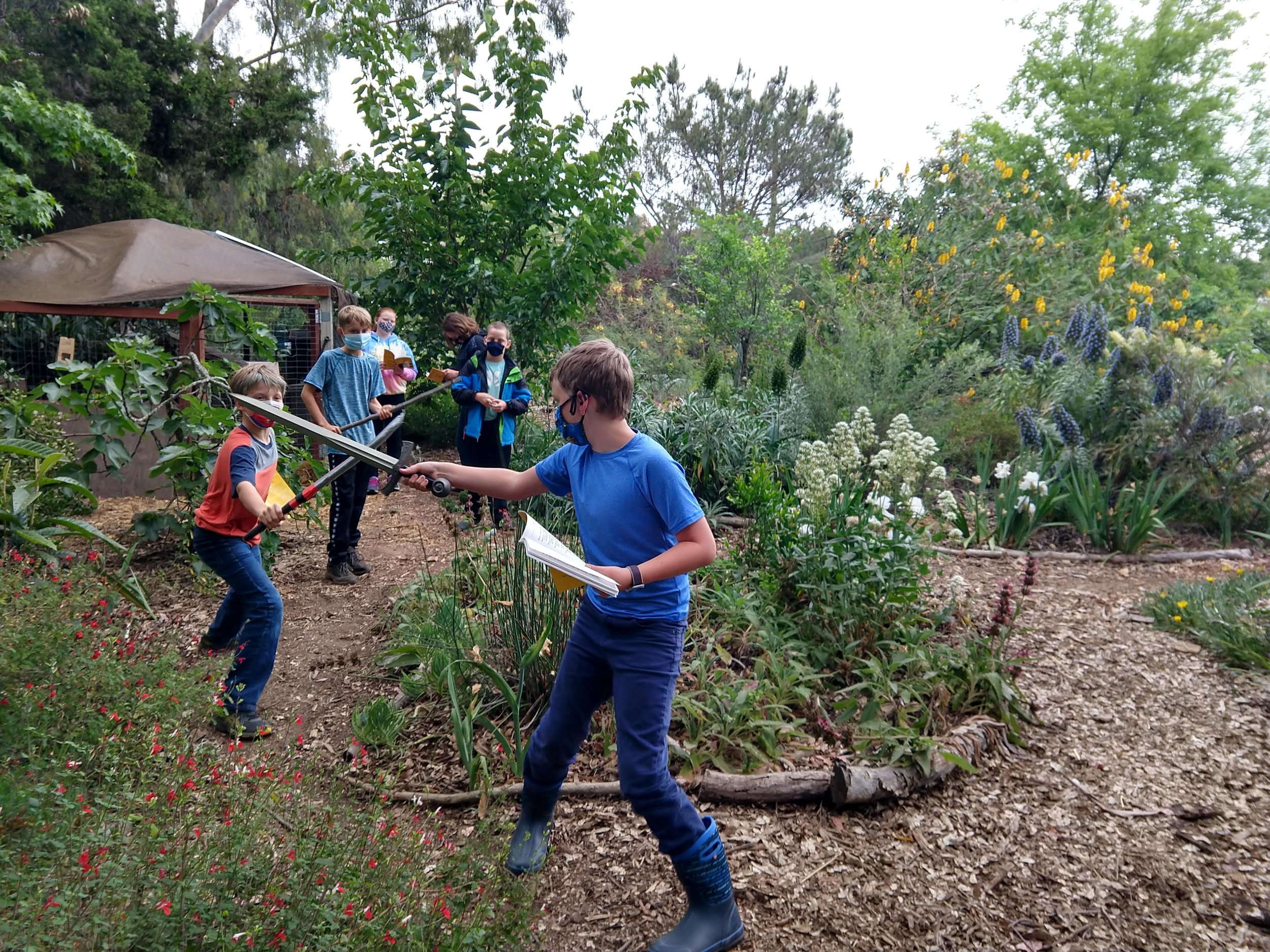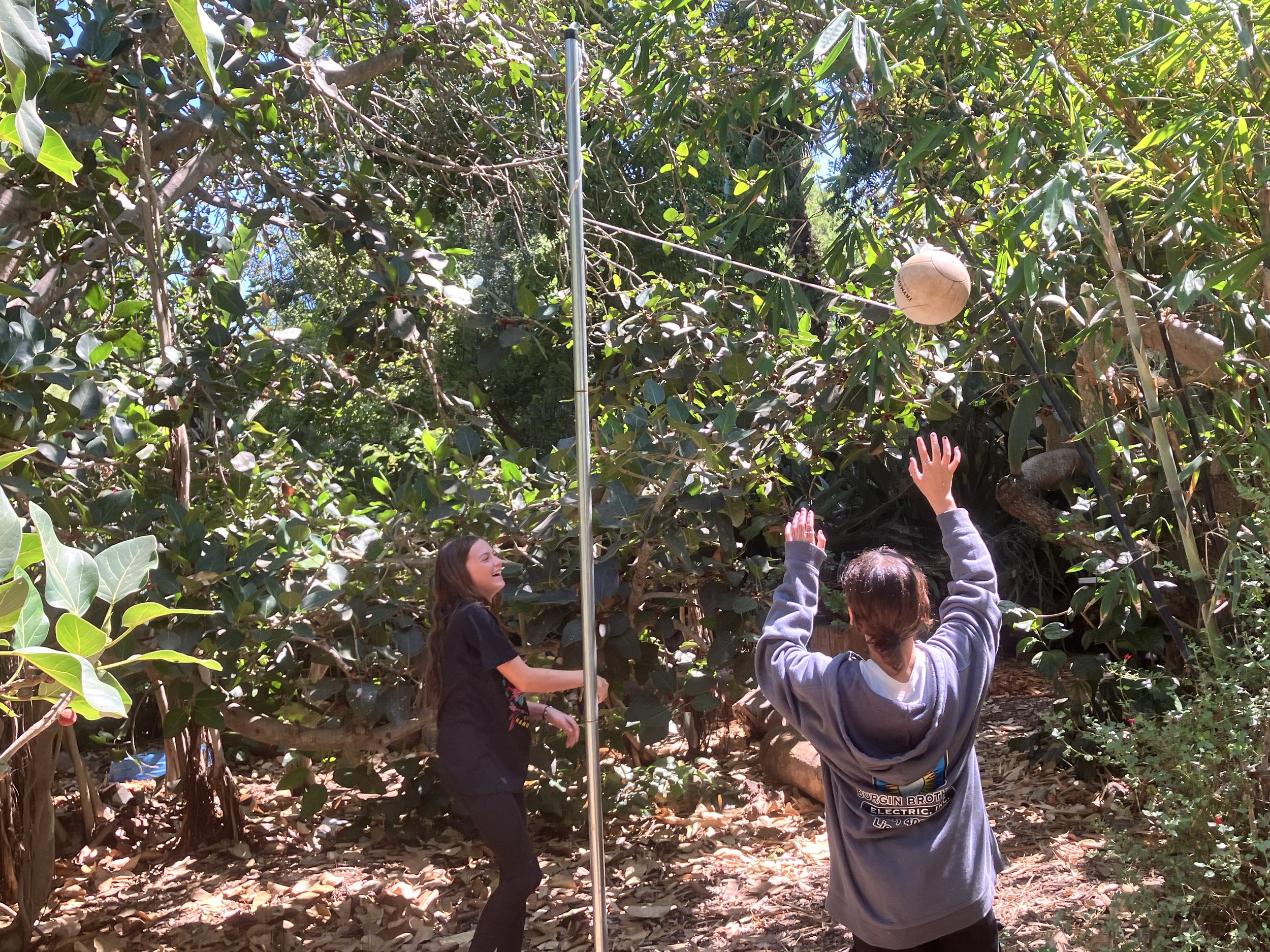Welcome to Farm School on Mt. Helix
Rigorous math, science, and English language arts classes for San Diego middle schoolers
Tentative seminar offerings for Fall 2026 are posted as of 1/28/26.
-
If your student is interested in enrolling for classes in the fall or spring, the check out the seminar page for class details, then come on a tour.
Next tour dates are
FULL -Tuesday February 3rd, 3:30 to 4:30 pm
Tuesday March 3rd, 3:30 to 4:30 pm
Tuesday April 14, 3:30 to 4:30 pm
Tuesday April 21, 3:30 to 4:30 pm
During the school year tours are held at the end of an ongoing class so students can see a class in action.
Contact Ms. Lisa to sign up for a tour.
NOTE: Science and Language Arts is only open to either current students or student who also enroll in a math class.
-
Current students - submit your enrichment orders!
New students, reach out to Ms. Lisa first for a tour and to find out if there is room in spring classes.
EO for Charter Schools due 8/10
1st installment for private funds also due 8/10.
2nd installment 10/10
Spring semester drop deadline Nov 10.
Spring Semester EOs/1st installment due Dec 10, then Feb 10.
Details on how to pay or place orders HERE
-
Tuesdays & Thursdays
15-week math classes (2.5-2.75 hrs/week) $450 each with built in drop-in tutoring day
12-week Science and Language Arts (4 hrs/week) $700
12-week Real Life Farm Science class (2 hours/week, no HW) $400
4-week Writing Workshops $230
4-week 2.5 hours a week Shakespeare class $230
See SEMINAR PAGE for all the details (updated 6/6/25)
Farm School is where we grow.
We are all about
Nurturing wonder in the outdoors
Building inclusive friendships and community
Fostering social & emotional growth
Sharpening critical thinking through rigorous math, biology, and language arts classes
Farm School is a beautiful natural setting for nurturing wonder
Students in Farm School seminars spread out under the boughs of our majestic banyan tree, across the acre of our micro-farm, and in our Farm School annex on Mt. Helix, in La Mesa, San Diego County, CA.
Writing workshop on a winter day under the banyan tree
The Farm School on Mt. Helix Annex
Farm School is phone-free zone
A smart-phone free zone is a double gift to children.
First, our phone-free zone allows students to be fully mentally present when they are physically here. To give all of their attention to the actual humans they are physically with. And to really hear the wind high in the palms and the woodpecker hunting for his lunch. This grounding is a prerequisite to healthy social and emotional development and relationships with peers as well as frees students to wonder about the natural world around them.
Secondly, our phone-free zone allows them to experience the confidence that comes from being away from Mom and not a nano-second away from checking in with Mom. It's how children, especially pre-teens and teens, grow into confident, resilient, non-fragile adults.
-
BANYAN TREE CLASSROOM AND BEYOND
The entire acre of gradens and orchard is our classroom. We have chairs in the round beneath the boughs of our magnificent banyan tree for instruction, discussion, rehearsal, writing space.
In our natural setting students’ questions and curiosity are nurtured. We marvel at and study the hummingbird who builds her nest under our rainy-day shelter, the piglets who grow from 22 pounds to 300 pounds in a semester, the catfish with his poison-tipped whiskers who gobbles sow bugs and worms from our vermiculture bin. We discuss human nature as we read great literature and learn the language of science as we study algebra.
FARM SCHOOL ANNEX CLASSROOM
Direct instruction requiring audio-visual equipment usually happens in our Farm School Annex: 600 square feet of classroom space with huge 9x8’ doors open to the trees. Most of our math class instruction occurs in the Farm School Annex as that requires a document camera for modeling problems on our note-taking forms.
WARM UP BY THE FIRE
Our rainy-day shelter and fire pit beneath the banyan tree are popular spots for writing and group work especially on cold days.
PHONE FREE ZONE
Studies show that even phones that stay in a backpack at school are still a source of anxiety and distraction for teenagers. (That research- the part about smartphones still negatively impacting mental health even when they are away in the backpack- surprised me. For more information, see The Anxious Generation: How the Great Rewiring of Childhood is Causing an Epidemic of Mental Illness , by Johnathan Haidt, social psychologist.)
Research shows that teens who don't have access to a smart phone at school and no social media until past puberty are happier and less anxious than their peers.
Additionally, studies also show that parents who insist that they need to be able to check on their child all the time via a phone inadvertently make their child feel unsafe and thus contribute to the tsunami of teen anxiety.
Phones should remain at home. If your child has extenuating circumstances that necessitate a phone turned off in their backpack, please contact Ms. Lisa to discuss.
Farm School is Connected & Inclusive
Students form inclusive friendships, connecting with each other during lunch, recess and classes as they dig into challenging and interesting science, literature, writing, and mathematics.
Kindness and inclusivity are of paramount importance here.
-
Friends are important!
Students have opportunities to make friends as they work on interesting projects together, play math games as a team, rehearse Shakespeare and Sophocles, shoot hoops and the breeze during lunch.
Farm School is a safe place for kids who are neuro-divergent, anxious, gifted, shy, extroverted, passionate, quiet, loud, driven and meandering. Given the nature of outdoor classes, students need to have good self-regulation skills and impulse control in order to be safe outdoors.
Working together to build a raft for their aquaponics project
At Farm School, recess matters for building community and social and emotional development
Unstructured social or play time is vital to a young person’s social and emotional development. It’s in the moments of inventing a new game, chatting over the fire during lunch and negotiating turn taking in a discussion or at tether ball or on the swing, that kids develop crucial social and emotional skills.
-
Friendships are often knit together in the interstices between structured learning activities. It’s when kids are brushing the cows, harvesting macadamia nuts, and testing the pond water that they talk about their lives, work together, and become friends.
I started Farm School, in part, so my own children would have these opportunities to build deep relationships with other curious learners and so they would practice the vital and complex social skills required in collaborative learning, such as listening to understand (not just waiting to say your piece) as well as brokering satisfying compromises among themselves.
In addition to social-emotional developmental and friendships, recess has brain benefits since physical movement prepares our brains for academic tasks such as analyzing poetry or factoring quadratic equations. During recess at Farm School on Mt. Helix, kids climb trees, soar in the swing, jump on the trampoline, play tetherball and basketball, invent crazy ball games, play giant Yahtzee, and sprint after one another in a zillion different versions of tag. And some sit around a play chess, cards, or chat— but even those students spend part of their break moving to different parts of the property for those pastimes.
Farm School Seminars are Intellectually Challenging
These aren’t fluff classes. They are rich and rigorous academic courses.
Students leave Farm School not just having mastered challenging content, but also having developed academic skills that help them excel in a wide range of academic settings. At Farm School kids dive deep into Shakespeare, animal anatomy, algebra, persuasive essay writing and more. They tackle interesting and meaningful homework assignments. They also learn more about how to learn, how to think critically AND how to be a successful student.
Farm School classes are great for GATE students.
I have significant professional experience teaching gifted students. In fact, one of the reasons for starting Farm School was to meet the needs of gifted children and twice exceptional children who may have great gifts in one area and areas of relative weakness in another.
Farm School Math Classes are an excellent way to get ahead in math
Math 7 is open to any student ready for it. Precocious 4th & 5th graders welcome.
-
MS. LISA’S EXPERIENCE AS A GATE TEACHER
I started out as a GATE teacher in traditional schools in Cupertino in the Bay Area. I was the 6th grade GATE teacher for the highest performing middle school in the state of CA (as measured and ranked by API test scores.) I taught honors history and English in the Bay Area as well as San Dieguito Union High Schol district here in North San Diego County.
In addition to my traditional middle school classroom experience as a GATE teacher, I have had many students at Farm School who are gifted. That’s it’s one of the reasons parents seek out my classes: for the academic rigor and opportunity for gifted kids to excel and still be in a social setting. It is also part of why I started Farm School: to meet the needs of my own gifted children.
Farm School classes are rich, deep, and challenging.
MATH CLASSES - Open to both kids who are ready to rocket ahead in math or who are at grade level
Get ahead: Is your student really good at math and wants to move ahead? Math 7 is open to any student who meets the prerequisites. (My daughter took Math 8 + Honors Pre-Algebra with here at Farm School as a 4th grader and is now in Calculus 1 as an 8th grader. Her brother took it at the same time as a 6th grader and is also finishing Calculus this year as a sophmore.)
If your student is at grade level as a 7th grader, this class will work for them too. Lots of support in class and out of class; hands on learning each week plus how to be a math-thinker is explicitly taught.
I want students to leave Farm School math classes ready to rock any high school math class they encounter. So our sequence of Year 1 - Math 7, Year 2 - Honors Pre-algebra + Math 8, then Year 3 - Honors Algebra fully prepares students for honors geometry or Integrated Math 2.
Past students who moved on to integrated math courses tested into Math II Honors, and even then most of the first semester was review for them. Our math student find their subsequent math classes pretty easy and are excelling in college math classes as high school students.
ENGLISH LANGUAGE ARTS
Our language arts classes are deep.
In our middle school classes, we study Shakespeare, Sophocles, and other great writers. As we read deep and interesting books we also learn to write essays with MLA citations.
And yet I meet each child where they are and scaffold to support all learners so even inexperienced writers have an opportunity to fully participate in our classes and grow.
SCIENCE
We dig into the science of living things touching on science standards from 6th to 9th grade as they pertain to the living creatures we are learning about.
HOMEWORK
All seminars have weekly homework to deepen students’ understanding of concepts and prepare them to discuss the literature we’re reading and writing about.
Math seminars also have graded quizzes and tests to assess students’ conceptual mastery and prepare them for high school courses.
Student demonstrating how to factor quadratic equations
Farm School is a Community
From parent mingles to stay-late student parties and summer bay days, kids and adults have many opportunities to form lasting friendships here at Farm School.
-
PARENT MINGLES
At least once a quarter we host parent mingles for parents to meet one another while students hang out after classes. As homeschooling parents we need time to mingle, meet the parents of our kids’ friends, share resources, network (and sometimes commiserate and then reassure each other!) Our parent mingles foster these vital connections in a small environment for homeschool parents.
STAY LATES
During our very first year, students asked to have a class party after school to hang out with their friends. That has become a quarterly tradition now that students eagerly look forward to!
SUMMER BAY DAYS
Farm School families meet up at the bay during warm weather for time to students to extend friendships beyond class time and for parents to visit. We host parent mingle days and student stay-late days so families can network and form lasting friendships.
Meet Lisa Clark-Burnell, teacher & perpetual learner
Farm School seminars happen on our one-acre micro-farm on Mt. Helix in San Diego county.
I’m an experienced, CA-credentialed teacher. I began teaching middle school and high school in the Bay Area in 1996 and began am also began homeschooling when my oldest child- now in college- was in kindergarten.
I teach enrichment seminars which align with my professional and personal expertise and passions. Students are welcome to enroll in one seminar or many to supplement their home-centered education.
-
I value academic rigor and depth of understanding; this is what I want for my own children who participate in our classes. So our Farm School seminars focus on higher level thinking skills and most have a homework component which prepares students for class and deepens their understanding. This is usually reading, responding to literature, or math problems.
I value community so our seminars have recess and social time built into them so students have down time to get to know each other as this is a critical part of their emotional and social development.
I value inclusion and diversity so students with learning differences learn side-by-side with neuro-typical students in our classes. My own kids are neurodivergent and I have experience professionally teaching students with learning differences. Students from families with varying homeschooling philosophies, political perspectives, and cultural backgrounds are all welcome.
Learn more aboutFarm School’s origins and my teaching philosophy here.
What does learning at Ms. Lisa’s Farm School on Mt. Helix look like?
Raising ducklings to learn about waterfowl anatomy and husbandry
Project-based learning- students showing off their aquaponics raft which they just designed and built from scratch
Team vocabulary analogy Jeopardy matches
Meaningful and creative writing projects encourage students to think deeply
Templates, models, and one-on-one writing coaching allow students to develop sophisticated writing
Team work makes project time both social and academic
Quiet moments to reflect and observe changes in the ecosystem sharpen powers of observation and help students to see the world as a scientist and poet
Long chunks of time with challenging open-end projects allow students to get into flow
Hands on zoology and animal husbandry studies bring science alive
Students teaching students
A majestic banyan tree, Ficus Benghalensis, is the roof top of our classroom. (This photo depicts early FS years when we had younger students.)
Cooperative learning builds friendships and deepens one understand of complex topics
Preparing stage curtains for Macbeth
Evaluating their primary sources for inclusion in their debate arguments
Warming up on a cold day while working on essay revisions
Making models and note taking makes learning memorable and builds conceptual understanding (COVID era photo)
Farm work builds community: we help each other out.
Building community- costumes for Halloween
Preparing Duckingham palace for baby ducklings by adding mulch to the enclosure. Working together is students FAVORITE time of day.
Real-life animal husbandry requires hard work and delivers a well-earned sense of accomplishment. (Hamsolo and Chewbacon)
Getting the cattle corral ready for cattle by removing inedible shrubs
Project time - rock band
Students bringing their mandolin and banjo from home for learning science songs
Preparing to turn in Excellent Learning Habits tickets for our end of semester celebration
Rehearsal break for Antigone scences
Field trip up to Mt. Helix Park and Ampitheater
Rehearsing Antigone
Observing during D.O./D.E.W. time builds awareness and soothes nerves in a busy bustling world
Finding a praying mantis! What's it's role in the Farm School ecosystem?
Harvesting persimmons to take home (and some as a milking stanchion treat for our milk cow.)
Lunch time conversations build community
Project time: hand work builds confidence, dexterity and social bonds as students teach each other and chat
Harvesting cauliflower together!
Building a miniature pond for the ducks using natural springs on the property
Dissecting owl pellets gathered on site
Luna the chicken raising a duckling she hatched: the wonder of the natural world
Tree fort recess time
Just hanging around
Growing succulents to take home
Friends! from our early years when we had younger classes
Science of lagomorphs (bunnies) and cuddling and caring for them
Stone fruit pollination - peaches. Learning how to properly prune fruit trees and the botany of stone fruits.
Flower arranging during our botany year.
Natural beauty brings joy!
Zoology: new litter of kits (baby bunnies).
Baby bunnies in the next box
Pond and seasonal spring water microscope studies.
Writing lab time
Partners working together to measure for making stage curtains.
Rehearsing Romeo and Juliet during COVID
Rehearsing Macbeth scenes
Caring for our miniature heifer as part of zoology
Reading rich and challenging literature: Julius Caesar readers' theater
Fresh air, friends, and exercise: tether ball during recess
Ursula's baby calf- catalyst for learning about bovine reproduction, delivery, and lactation. This is real-life zoology!
Making friends: recess matters. Chatting at lunch.
Research paper peer conferences on a cold day under the banyan tree
Research, synthesis then public speaking: student earth science presentations
Math in the Farm School Annex
Farm Work in Teams - building community while learning about natural systems: harvesting limes (yes, limes are yellow not green when they are ripe.)
